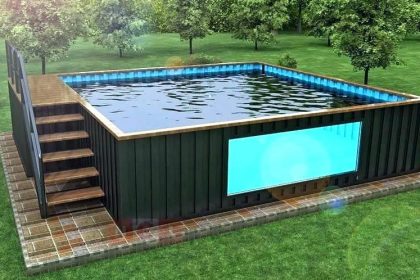Your commercial roof may not be the center of attention, but its silent protection is crucial to your business operation and the pulse of your facility daily. When faced with repairs, replacement, or aftercare needs, guiding the world of roofing contractors can seem massive. But be fearless. This expert guide gives you the knowledge and tools to choose the best commercial roofing partner to meet all of your facility’s custom needs.
Defining your project blueprint:
Before you hop on the web aimlessly searching for the best industrial roofing contractor, you must have goals and a defined scope of work. Pro-Link Roofing Systems can help you define your goals and overall needs for your project. They specialize in writing industrial commercial roofing specifications. Through decades of experience in the industry, their technical analytics team can determine what on your rooftop needs to be replaced now, and what can wait to allow you the time to budget and plan for future replacement. If partial or total roof replacement is deemed to be the best course of action, Pro-Link can design a roofing system for you using high-quality, time-tested roofing materials. They can design roofing systems that last 2-3 times the competition. In most cases, this can be achieved for some time a little more, a bit less, or even the same price.
Use credible sources and online insights:
One of the other ways to find your expert industrial roofing partner is through personal recommendations. Start by collecting referrals from trusted colleagues, neighbors, or industry experts. Their primary experiences offer purposeful observations into contractor’s reliability, artistry, and customer support. You can also check on online review platforms like Angie’s List or Google My Business. Consider compatible patterns in reviewer feedback, paying close attention to comments about the professionalism, communication, and quality of work of the industrial roofing contractor. While positive feedback is encouraging, don’t shy away from negative ones—they can reveal potential red flags like cheap quality or poor communication, aiding in risk relief. Though online reviews can be a good baseline, no matter how good or bad a company is you will often find a mixed bag on the scale of excellent to poor. To be sure I would recommend before making any buying decisions that you conduct thorough phone, email, and even in-person meetings to determine if the potential partnership is right for you and your roofing needs.
Verify Credentials:
Remember not to take licensing and insurance for granted! Potential contractors must always provide copies of their valid state licenses and comprehensive liability insurance certificates. Verify the licenses with your state’s licensing board and make sure the insurance coverage effectively protects your project size and difficulty. Working with an unlicensed or uninsured contractor discloses your business to reveal financial and legal risks.
Seeking proven expertise:
Experience takes over supreme in the roofing industry. Search for contractors with a well-established history of successful commercial projects like yours. Request proof of their knowledge, involving sources from past clients with similar projects. Ideally, choose a contractor who is experienced with buildings in your area and familiar with local building codes and regulations. Choosing a local roofing contractor might seem like a good idea, but in most cases selecting a national or regional roofing partner with a larger reach is better in the long run.
Secure multiple bids:
Don’t settle for the first quote! Contact at least three reputable contractors and request detailed written estimates outlining the scope of work, materials, warranties, and timelines. A company like Pro-Link Roofing Systems can even help you write the rooftop specification for your facility to ensure you’re getting an apples-to-apples comparison during the bid process. This comparative analysis allows you to evaluate pricing, proposed solutions, and the overall value each contractor offers.
Schedule consultations and engage in detailed discussions to assess their expertise and communication style.
- What types of roofing systems do they specialize in?
- What safety protocols do they follow?
- How will they address unforeseen challenges?
- How will they communicate project updates?
Give importance to Warranties and Guarantees:
Warranties and guarantees are crucial parts of your investment. Before partnering with a commercial roof contractor, you must request each contractor to explain their artistry and materials warranties in detail. Always search for contractors who offer long-term warranties. Look out for credible manufacturers and ensure you understand the terms and conditions, including any exclusions or limitations. Additionally, ask about any extended warranties or guarantees provided by the contractor.
Always trust your Instincts:
In the end, your decision should be based on a comprehensive assessment of experience, qualifications, communication style, responsiveness, and overall comfort level. If a contractor raises warning signs like vague estimates, aggressive sales tactics, or uncertain answers, just leave. Choose a contractor who inspires confidence and feels like a true partner in protecting and managing your business. Pro-Link Roofing views every roofing project as a long-term strategic mutually beneficial partnership.
Final Thoughts
By following these steps, you’ll be well-equipped to guide the commercial roofing contractor selection process firmly. Your roof is an important part of your property so choose wisely. By giving utmost attention to quality, clear communication, and experience, you’ll get a suitable partner to ensure your business progresses under a safe and dependable roof for years.
Get in touch with Pro-Link Roofing Systems, a company headquartered in Naples Florida, that services all 50 states, and is committed to supporting and strengthening their client’s sustainable objectives throughout the country. They are experts in their field and design high-quality time-tested roofing solutions for industrial plants, commercial office facilities, warehouses, and food manufacturing facilities.





